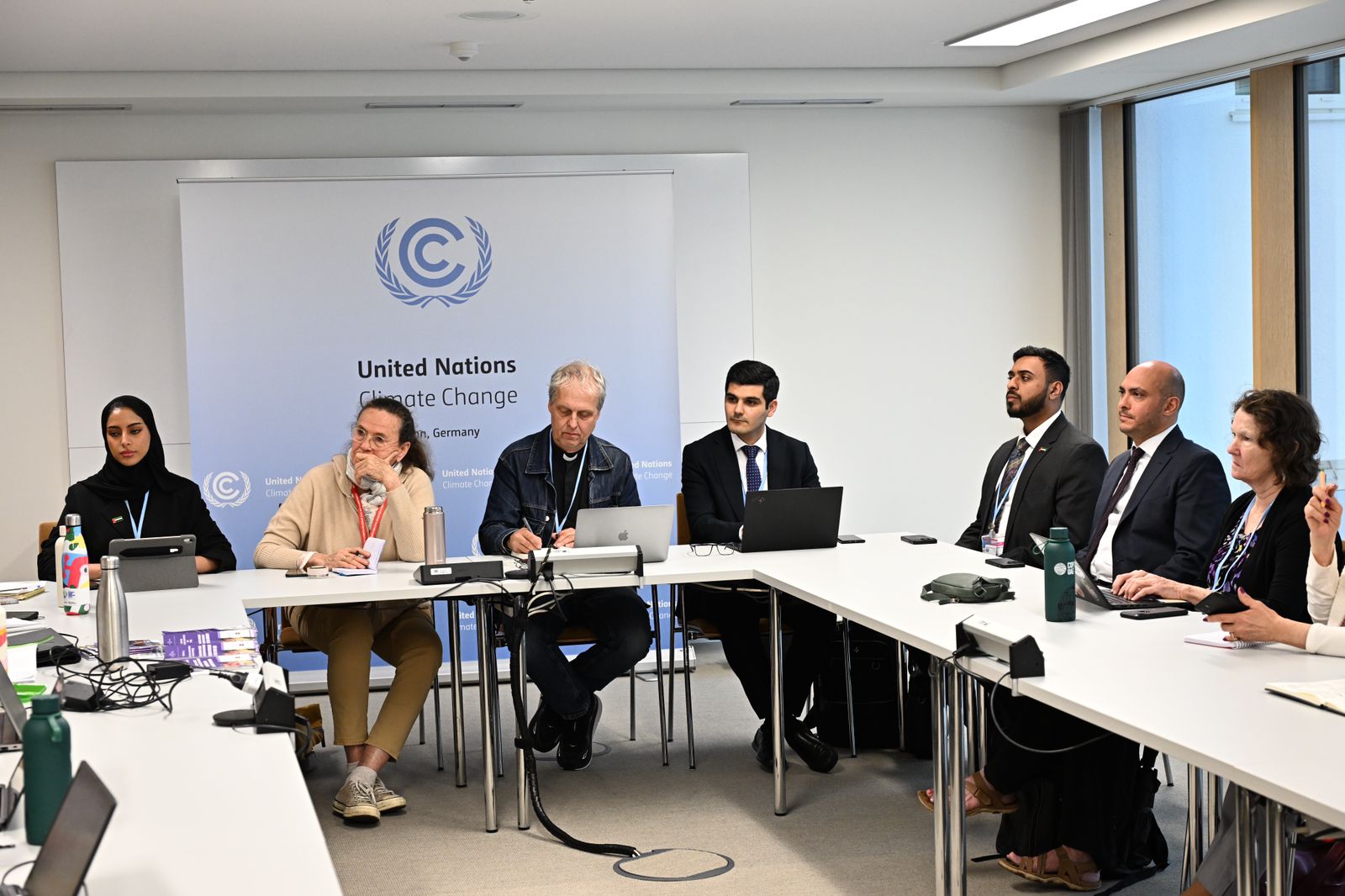ضمن فعاليات مؤتمر بون للمناخ .. مجلس حكماء المسلمين يشارك في اجتماع لمناقشة دَور المؤسسات الدينية في تعزيز العمل المناخي العالمي
شارك مجلس حكماء المسلمين في اجتماع ضمن فعاليات مؤتمر بون للمناخ بدورته الستين (SB 60)، ناقش دور المؤسسات الدينية في تعزيز العمل المناخي العالمي، وذلك إلى جانب كلٍّ من الأمانة العامة لاتفاقية الأمم المتحدة الإطارية المعنية بتغير المناخ، ولجنة التنسيق بين الأديان (ILC)، وممثلي رئاسة مؤتمر الأطراف COP28، ورئاسة مؤتمر الأطراف COP29، والمؤسسات الدينية.
وهدف الاجتماع الذي عُقِدَ في المقر الرئيسي للأمانة العامة لاتفاقية الأمم المتحدة الاطارية المعنية بتغير المناخ بمدينة بون الألمانية، إلى وضع إستراتيجيات تركز على سُبل مواصلة المؤسسات الدينية مشاركة ودعم الدول للوصول إلى أعلى الطموحات في العمل المناخي، بما يُسهِمُ في تحقيق المساهمات المحددة وطنيًّا بحلول عام 2025.
وخلال اللقاء، أوضح فريق مجلس حكماء المسلمين الدور المؤثر الذي تقوم به المؤسسات والمجتمعات الدينية من خلال سلطتها الأخلاقية وعلاقاتها واسعة النطاق، والتزامها الراسخ بتحقيق العدالة الاجتماعيَّة، مؤكدًا ضرورة الاستفادة من هذا الدور في تعزيز اتخاذ مزيد من الإجراءات الحاسمة بشأن المناخ، والمساهمات المحددة وطنيًّا خلال السنوات القادمة، فيما أشار المشاركون في الاجتماع إلى أهمية التعاون البنَّاء بين ممثلي المجتمع الدينـي، والحاجة الملحَّة إلى إنشاء إطار عمل موحد لمواجهة التحديات المناخية.
جديرٌ بالذكر أن مجلس حكماء المسلمين يكرِّسُ العديد من الجهود من أجل تفعيل دور قادة الأديان في مواجهة قضية التغير المناخي، التي من أبرزها تنظيم القمة العالمية لقادة الأديان من أجل المناخ، والتي تُوِّجت بإطلاق نداء الضمير بيان أبوظبي المشترك من أجل المناخ الذي وقَّعَ عليه فضيلة الإمام الأكبر أ. د. أحمد الطيب، شيخ الأزهر الشريف وقداسة البابا فرنسيس بابا الكنيسة الكاثوليكيَّة، إلى جانب 28 من القادة الدينيين، بالإضافة إلى تنظيم أول جناح للأديان بتاريخ مؤتمرات الأطراف، وذلك في الدورة الماضية للمؤتمر COP28؛ حيث قدَّم منصة عالمية ضمت قادة دينيين وخبراء في مجال البيئة وأكاديميين وممثلين للشباب والنساء والشعوب الأصلية، لبحث أفضل السُبل للحفاظ على كوكب الأرض وحماية موارده الطبيعية.

